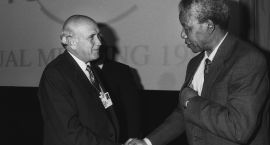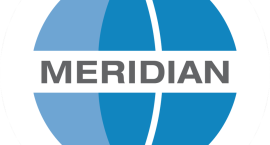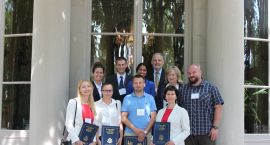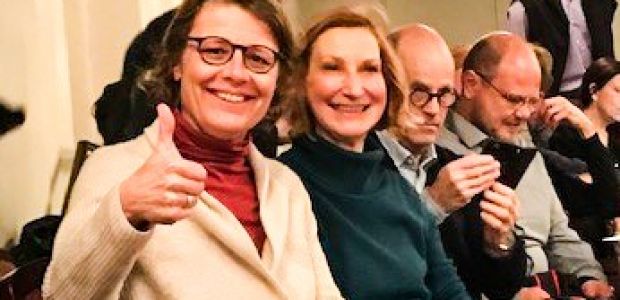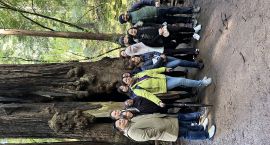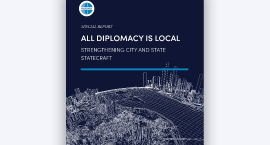This blog post was contributed by Lee Norrgard, Program Officer in Meridian’s Professional Exchanges Division.
Even before the stay at home orders closed 124,000 elementary and secondary U.S. schools last spring, a survey of approximately 17,000 U.S. teachers and administrators almost unanimously indicated digital learning is now an integral part of teaching and learning. However, with the coronavirus acting as a catalyst, e-learning is dramatically changing education as millions of students remain distance learners. Without the internet, there would be no teaching and learning right now; but on the same internet, disinformation, misinformation and malinformation flourish. In a Stanford University study of 7,800 middle, high school and college students, researchers were shocked by the number of students who failed to evaluate the credibility of the information they consume.
To share best practices in teaching both media literacy, which is defined as empowering students to be critical thinkers, and digital literacy, the State Department’s International Visitor Leadership Program (IVLP) sponsored the visit of 13 Dutch educators including teachers, curriculum designers, researchers, trainers, media literacy specialists, and educational NGO representatives. Eugenie Zwanenburg-Dumoulin is a Biology and Digital Literacy teacher and curriculum designer at Veurs Lyceum, a Dutch secondary school with 850 students. Concurrently, she is a Policy Officer with the Dutch Ministry of Education, Culture and Science.
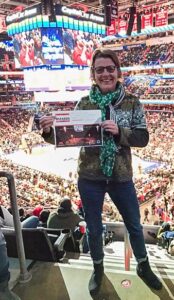
She and her colleagues spent a little over two weeks in the U.S. in December 2019, spending four working days in Washington, DC, three in Kalamazoo, Michigan, and two in Providence, Rhode Island. In Washington, the meeting brought together specialists from the World Bank’s Education and Technology sector, two not-for-profits offering tools and techniques in media literacy, and two think tanks. In Kalamazoo, they met with communications professors at Western Michigan University, an NGO empowering youth through the media, and a school focusing on at-risk youth.
In their first two city stops, the IVLP participants visited four high schools. Two visits took place in suburban Washington, where one school concentrates on technical and specialized skills and the second offers students a special curriculum focused on identifying and debunking disinformation. In Kalamazoo, they visited a high school journalism class that publishes the school newspaper and the Department of Technology that provides e-learning support at a nearby suburban school.
At the final stop in Providence, a full day was spent in a workshop led by the well-respected Director of the University of Rhode Island’s Media Education Lab, Dr. Renee Hobbs. Based on current research, she presented globally renowned practices in digital and media literacy. The visitors also toured a Summit, sponsored by the University’s Department of Education Computer Science program, that showcased Rhode Island’s initiative bringing computer science learning to all students.
Returning home, Eugenie summed up her lessons learned, addressing both fellow teachers and the Ministry of Education by sharing them online, through a series of four articles on LinkedIn. Below are the articles and some if her key thoughts:
- Five Lessons Learned from Public–Public and Public–Private Partnerships
- For successful digital learning, infrastructure, good content, well-trained teachers, and a clear vision are all required
- Libraries can be transformed into institutions where literacy and digital literacy should go hand-in-hand
- Six Best Practices on how High Schools can Design their Digital Curriculum and Support Teachers
- Design programs combining media specialists and school teachers teaching media literacy
- Integrate language lessons with digital literacy
- Six Lessons on Researching Different Educational Methods for Teaching Digital Skills and Technology
- Classroom teachers, equipped and supported in using digital technology and learning resources, will be successful
- How a message is delivered determines how it is received
- Digital teaching standards are a mess and digital education goals are a moving target
- Five Key Takeaways on Similarities and Differences between Dutch and American Education
- Digitization is everywhere and requires a proactive coherent policy
- Develop together and learn from each other
- We as teachers know that not everything of value is measurable
One of the great learning experiences with Eugenie’s IVLP trip was the intervision or collegial consultation shared among the 13 colleagues. “What made it so special was to look at the same theme with colleagues from different backgrounds,” she shared. The scheduled meetings “were given great added value with the many conversations we had as a group afterwards.”
Her sentiments are best demonstrated in her Twitter hashtag (#mooionderwijsmakjesamen), which translated to English reads: Collaboration is always needed to make meaningful future proof education.
The Netherlands is working on a new curriculum for children ages four to 18. Digital literacy is not yet part of the learning areas, but it is one of the subjects Eugenie is advocating to get online.
Meridian implements programs like this IVLP visit in the belief that the world is safer, more secure and engaged when leaders can collaborate across countries and cultures.









